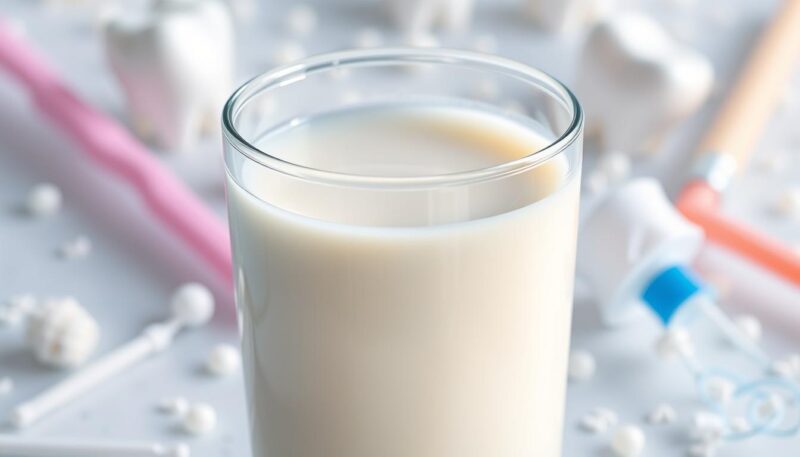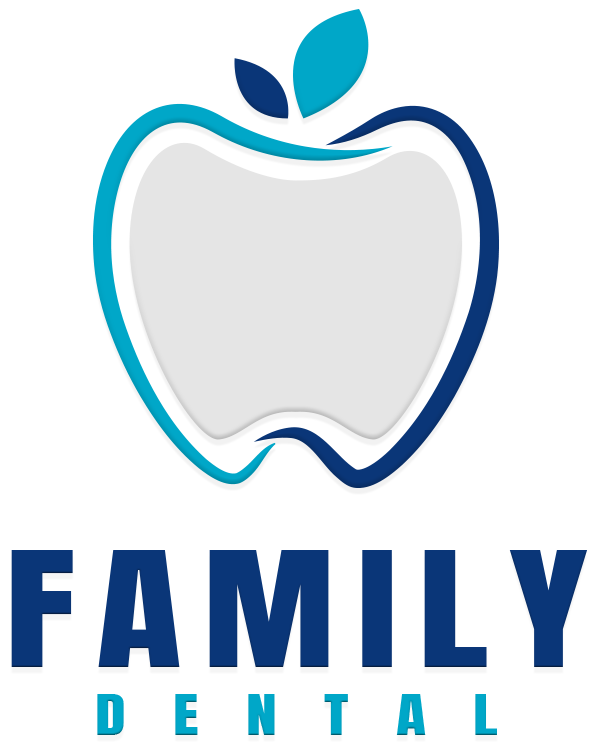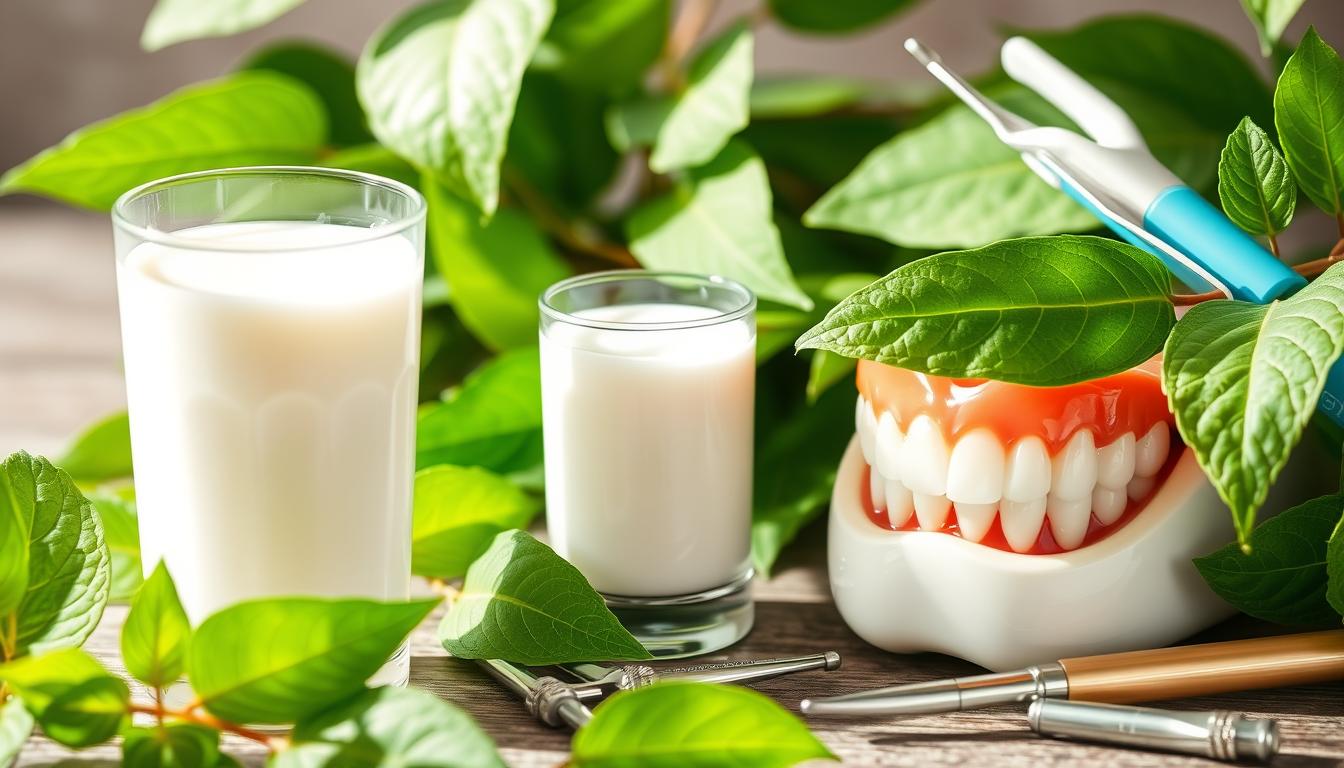You’ve likely heard that milk is good for your teeth and bones, and it’s true. Milk is one of the most widely available forms of calcium, crucial for early development when teeth are forming and for older adults at risk of bone density loss. This makes milk and teeth health closely related, as calcium is essential for maintaining strong teeth. The benefits of milk for teeth are numerous, and we’ll explore them in this article.
When it comes to calcium and tooth health, milk is an excellent source. The American Dental Association recommends 700 mg of calcium per day for children ages 1-3 and 1,000 mg for children ages 4-8, with milk being a key source. One cup of milk offers nearly one-third of the recommended daily amount of calcium, making it an easy way to support your calcium and tooth health needs.
As you consider the role of milk in your diet, it’s essential to think about how it supports your overall oral health. Regular dental care practices, such as daily flossing and tooth brushing, and bi-annual dental check-ups, are crucial for maintaining oral health. But milk and dairy products can also play a significant role in supporting your oral health, making them a valuable addition to your daily routine. By understanding the connection between milk and teeth health, you can make informed choices about your diet and support your overall calcium and tooth health needs.
Is Milk Good for Your Teeth? Understanding the Basics
Milk plays a significant role in maintaining your oral health. Understanding how dairy products for oral health support your teeth can help you make informed choices for a healthy smile.
The Role of Calcium in Dental Health
Calcium is essential for building strong teeth. Drinking milk for strong teeth provides the necessary minerals that contribute to the development and maintenance of your dental structure. This helps in preventing tooth decay and other dental issues.
How Milk Strengthens Your Tooth Enamel
Milk contains casein proteins that form a protective layer on your tooth enamel. This shield guards against bacterial attacks, reducing the risk of cavities and erosion. When comparing milk vs other beverages for teeth, milk offers a natural defense mechanism for your oral health.
Key Nutrients in Milk That Support Oral Health
Besides calcium, milk is rich in phosphorus and vitamin D, which work together to enhance dental strength. These nutrients not only support your teeth but also promote overall bone health, ensuring your smile stays healthy and strong throughout your life.
The Science Behind Milk’s Dental Benefits
Milk plays a crucial role in maintaining strong and healthy teeth, especially in children. Its rich calcium content supports good bone density, which includes your child’s teeth. The American Dental Association recommends that children aged 1-3 consume 700 mg of calcium daily, increasing to 1,000 mg for ages 4-8.
Calcium and phosphorus in milk aid the remineralization process, naturally repairing and strengthening tooth enamel. This process helps protect enamel from decay, making milk an excellent choice for milk and enamel protection.
Additionally, milk helps neutralize acids in the mouth, reducing the risk of cavities. Unlike sugary drinks, dental care with milk does not contribute to dental caries, making it a safe beverage choice for children.
Including a variety of calcium-rich foods for teeth can further enhance dental health. Here are some excellent options:
- Unsweetened almond milk
- Oat milk
- Soy milk
- Sardines
- Kale and broccoli
By incorporating milk and these calcium-rich alternatives into your child’s diet, you support their dental development and overall bone health.

Conclusion: Making Smart Choices for Your Dental Health
Including milk in your diet can significantly aid in tooth decay prevention. A daily glass of milk provides essential calcium, one of the best calcium-rich foods for teeth. This helps strengthen your tooth enamel and keeps cavities at bay.
If dairy isn’t an option for you, don’t worry. Many plant-based alternatives like almond milk, soy milk, and oat milk are fortified with calcium. These alternatives offer similar benefits, ensuring your teeth remain strong and healthy.
Beyond milk, incorporating other calcium-rich foods for teeth, such as leafy greens, almonds, and crunchy fruits like apples, can enhance your oral health. Pair these with good oral hygiene practices like regular brushing and flossing to maximize benefits.
Regular dental check-ups are crucial in maintaining your smile. Your dentist can provide professional care and advice tailored to your needs. Remember, while milk is beneficial, combining it with a balanced diet and proper dental care ensures the best outcomes for your teeth and gums.

